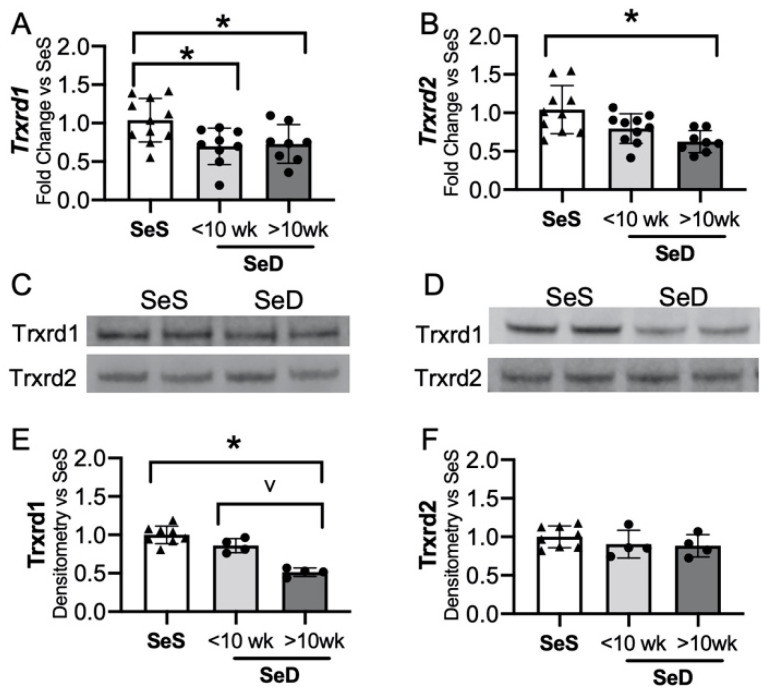Figure 5.
Neonatal hepatic thioredoxin reductase 1 is decreased by prolonged antenatal Se deficiency. C57Bl/6 mice were placed on diets that differed only in Se content, either 0.4 ppm or <0.01 ppm of sodium selenite. Breeding was initiated after 2–4 weeks on diet and natural delivery was allowed. Hepatic organ homogenate was evaluated on day of birth. Analysis is done with SeD samples separated based on if the breeding dam received more or less than 10 weeks SeD diet at time of birth. Each data point represents either a female or male from each litter; each individual point is an average of two mice. Fold change in (A) Trxrd1 mRNA and (B) Trxrd2 mRNA is shown normalized to SeS samples, (C) representative Western blot of hepatic Trxrd1 and Trxrd2 for SeS samples and SeD samples born to dams who received <10 weeks SeD diet, (D) representative Western blot of hepatic Trxrd1 and Trxrd2 for SeS samples and SeD samples born to dams who received >10 weeks SeD diet, densitometric analysis of (E) Trxrd1 and (F) Trxrd2 protein content expression. Results are normalized to total protein stain and expressed as a ratio to Se sufficient mice. N = 4–10 for all groups. Data are presented as mean (±SEM), * p < 0.05 vs. SeS control by multiple comparisons after one-way ANOVA, ∨ p < 0.05 vs. SeD <10 weeks by multiple comparisons after one-way ANOVA.

